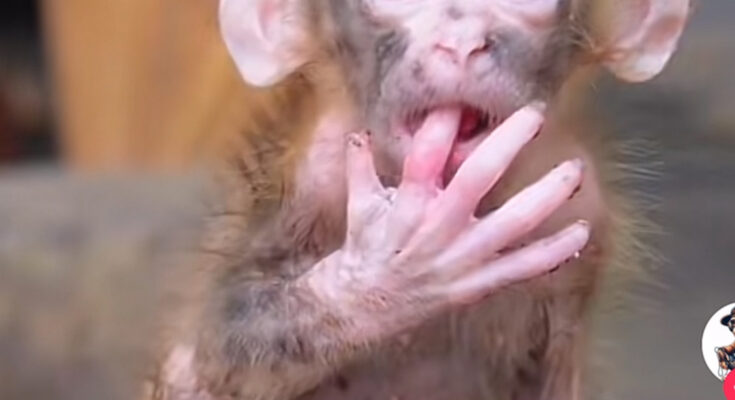Raising a baby monkey is a profound responsibility that extends far beyond simply feeding and cuddling them. These highly intelligent, social animals require specialized care, attention, and a deep understanding of their emotional and physical needs. Whether you are a licensed primate caregiver, working in a sanctuary, or supporting rehabilitation for release into the wild, it is vital to create the right environment for a baby monkey to grow up healthy and strong.
1. Create a Safe and Stimulating Environment
Baby monkeys are curious and active from a young age. Their enclosure should be secure, clean, and large enough for movement and climbing. Install ropes, perches, and enrichment tools to stimulate their minds and bodies. Always monitor temperature and humidity, especially for species native to tropical climates. A baby monkey’s environment should closely mimic their natural habitat to promote proper development.
2. Provide Proper Nutrition
Diet plays a crucial role in a monkey’s growth. Baby monkeys may initially require milk formula if they are orphaned or separated from their mothers. A primate-specific milk replacement formula is preferred over cow’s milk, which lacks necessary nutrients and can cause digestive issues.
As they grow, begin introducing mashed fruits, leafy greens, and specially formulated monkey biscuits. Nutritional variety is essential. Avoid sugary or processed foods, as these can lead to obesity or diabetes. Fresh, clean water should always be available.
3. Support Emotional Development
Monkeys are highly social creatures. A baby monkey that’s isolated from social interaction may suffer from psychological stress, anxiety, or even developmental delays. If a mother is not present, consider bonding the baby with other compatible monkeys under professional supervision. Human caregivers should handle them gently, consistently, and with care—but avoid over-humanizing them.
Emotional enrichment through toys, interaction, and comfort objects can reduce stress and support cognitive development.
4. Maintain Veterinary Care and Monitoring
Regular check-ups with an experienced primate veterinarian are critical. Baby monkeys are vulnerable to infections, parasites, and diseases such as pneumonia or diarrhea. Early detection saves lives. Keep accurate records of weight, behavior, food intake, and any health issues. Routine vaccinations, deworming, and fecal testing are also essential for maintaining a baby monkey’s health.
5. Socialization and Training
Proper socialization prepares baby monkeys for future integration with other monkeys or for release into the wild if part of a rehabilitation program. Gentle handling, positive reinforcement, and gradual exposure to group dynamics help them adapt well.
Avoid punishing or scaring them—this leads to fear and behavioral problems. Instead, reward calm behavior and curiosity to build confidence.
Final Thoughts
Caring for a baby monkey is not for the inexperienced or casual pet owner. It demands time, knowledge, and emotional commitment. With the right care—nutritionally, emotionally, and environmentally—a baby monkey can grow into a strong, healthy, and socially balanced adult primate. Whenever possible, prioritize rehabilitation and release programs, so monkeys can return to their natural habitats where they truly belong.



